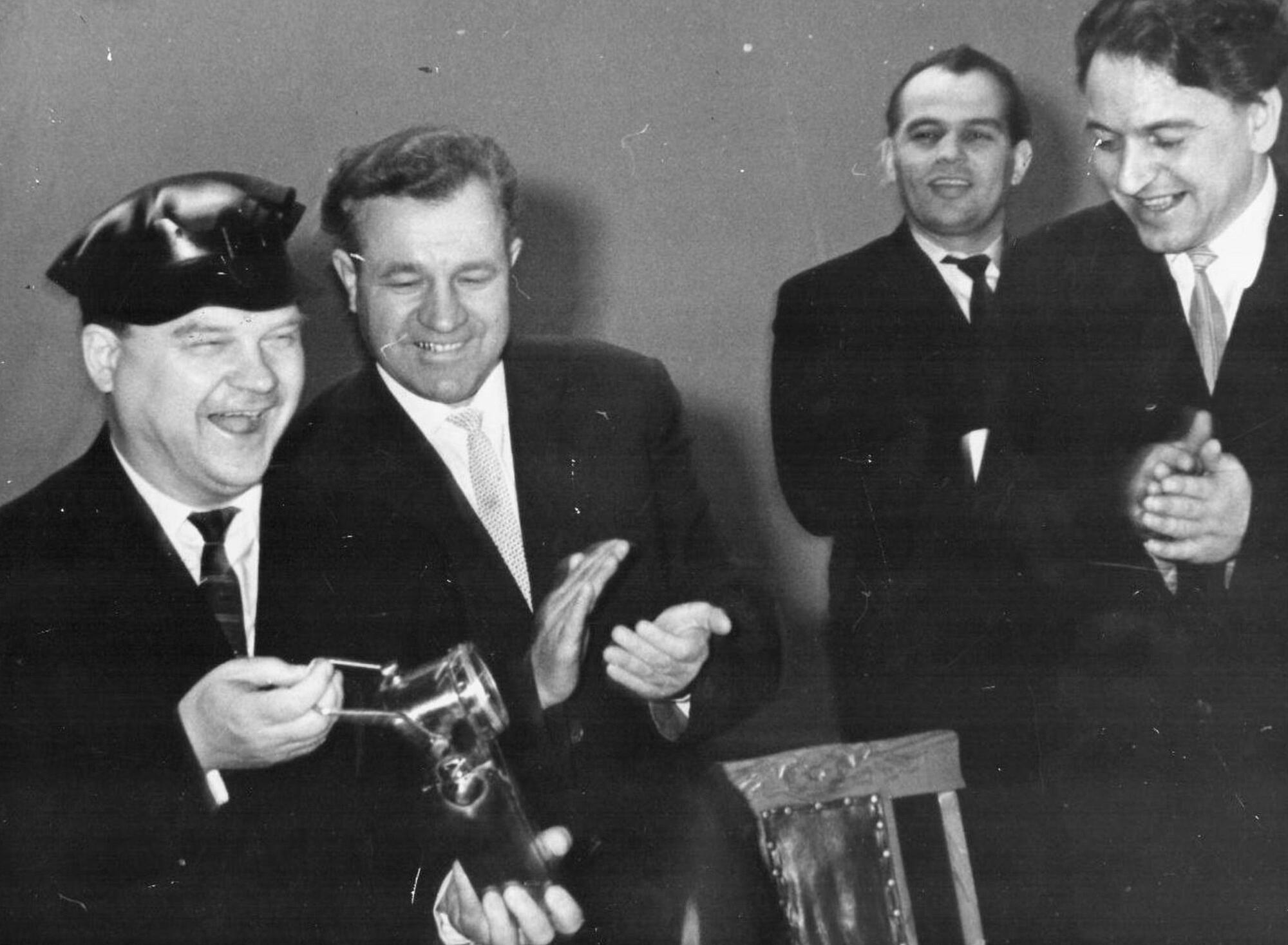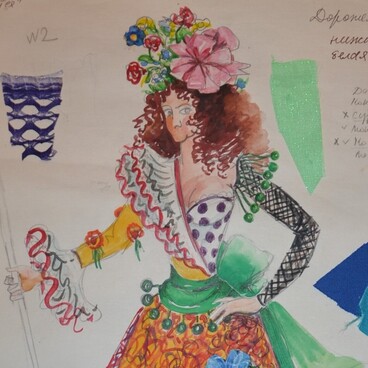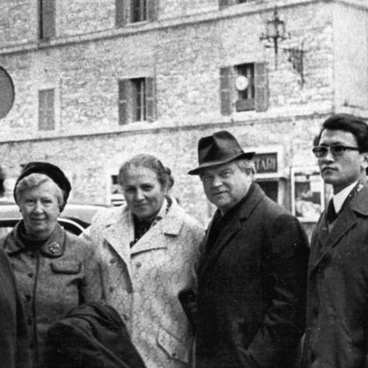Tikhon Khrennikov (1913 — 2007) was born in the town of Yelets. After nine classes of school, he entered the Gnessin Musical College and moved to Moscow. The composer combined creative and social activities: he was the head of the Union of Composers of the USSR, and also wrote 8 operas, 5 ballets, 3 symphonies, 9 instrumental concerts, music for 30 films and toured all over the country.
For the first time Donetsk appeared in Khrennikov’s life in 1950, when the director Leonid Lukov, the author of the film “Two Soldiers”, started shooting “Donetsk Miners” and invited the composer to write music for the film. Popular actors of that time took part in the film — Vasily Merkuriev, Boris Chirkov, Anastasia Zueva, Peter Aleynikov, Klara Luchko and Vladimir Druzhnikov. Writers Boris Gorbatov and Vladimir Alekseev worked on the script, and the cameraman was Mikhail Kirillov, known for his work on the film “Officers”.
The film “Donetsk Miners” was released in 1951. It participated in festivals and was awarded the Labor Prize at the 1951 Karlovy Vary International Film Festival. Khrennikov received the Stalin Prize of the second degree for the music for the film.
The songs from the film became folk songs — in Donetsk they were performed at holidays in the Houses of Culture and clubs. The composer became an honorary guest of the city, and more than once visited this place with concerts. On one of his trips in 1964, fans gave him a tour to the mine. After that, Khrennikov was accepted as an honorary member of the high-speed tunneling crew, and fans presented him with the attributes of a miner as a souvenir.
The photographer captured the moment when fans from Donetsk are presenting gifts to the composer. Khrennikov has a lantern in his hand with the dedication “To the Honorary Miner of the High-Speed Tunneling Crew of I. Zinchenko”, and on his head is a miner’s hat. In 2000, Khrennikov donated the gifts to the collection of the house-museum.
The composer used to say that he writes music for simple, inexperienced listeners. Therefore, he was happy when his works were performed by amateur singers and collectives. Also, Khrennikov always willingly performed with concerts in factories, and appreciated the signs of attention from the workers.
For the first time Donetsk appeared in Khrennikov’s life in 1950, when the director Leonid Lukov, the author of the film “Two Soldiers”, started shooting “Donetsk Miners” and invited the composer to write music for the film. Popular actors of that time took part in the film — Vasily Merkuriev, Boris Chirkov, Anastasia Zueva, Peter Aleynikov, Klara Luchko and Vladimir Druzhnikov. Writers Boris Gorbatov and Vladimir Alekseev worked on the script, and the cameraman was Mikhail Kirillov, known for his work on the film “Officers”.
The film “Donetsk Miners” was released in 1951. It participated in festivals and was awarded the Labor Prize at the 1951 Karlovy Vary International Film Festival. Khrennikov received the Stalin Prize of the second degree for the music for the film.
The songs from the film became folk songs — in Donetsk they were performed at holidays in the Houses of Culture and clubs. The composer became an honorary guest of the city, and more than once visited this place with concerts. On one of his trips in 1964, fans gave him a tour to the mine. After that, Khrennikov was accepted as an honorary member of the high-speed tunneling crew, and fans presented him with the attributes of a miner as a souvenir.
The photographer captured the moment when fans from Donetsk are presenting gifts to the composer. Khrennikov has a lantern in his hand with the dedication “To the Honorary Miner of the High-Speed Tunneling Crew of I. Zinchenko”, and on his head is a miner’s hat. In 2000, Khrennikov donated the gifts to the collection of the house-museum.
The composer used to say that he writes music for simple, inexperienced listeners. Therefore, he was happy when his works were performed by amateur singers and collectives. Also, Khrennikov always willingly performed with concerts in factories, and appreciated the signs of attention from the workers.



